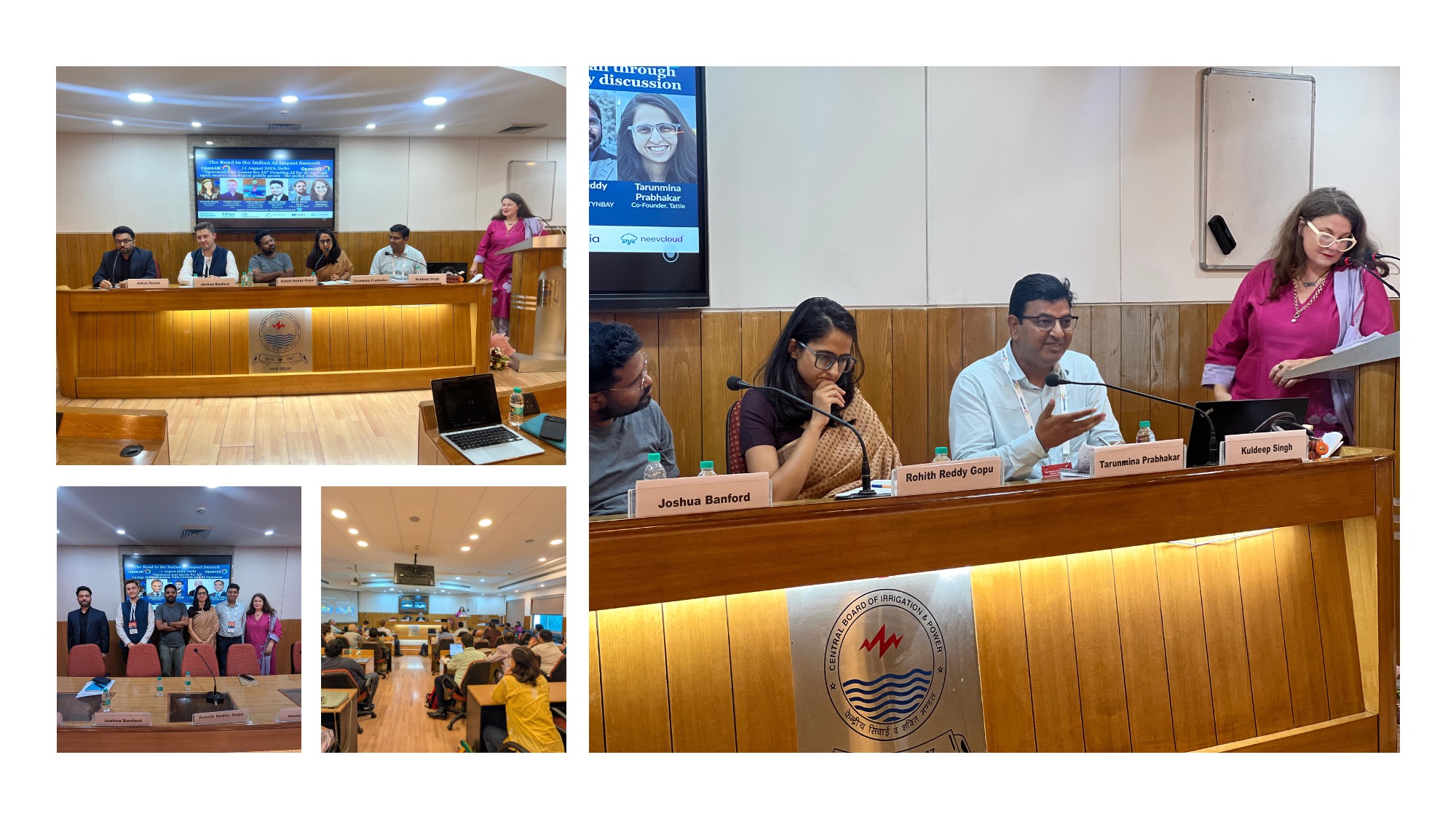Speaker | Pre AI Impact Summit: Openness in AI
- 3 minutes read - 635 wordsIndia will host the AI Impact Summit 2026, reaffirming its commitment to making Artificial Intelligence (AI) accessible and beneficial for the public good. The event will explore how AI can address real-world challenges in healthcare, education, agriculture, climate change, and governance—building on the momentum of global gatherings like the AI Action Summit France, AI Seoul Summit, and AI Safety Summit.
As part of the lead-up to the summit, OpenUK and OpenHQ have been hosting pre-summit events to spark conversations around AI openness. These discussions were inspired by Prime Minister Modi’s remarks at the 2025 Paris AI Action Summit, where he emphasized the need for “access for all” through open-source AI.

I was honored to speak at “Road to the Indian AI Impact Summit – Openness and Access to All” in Delhi on August 11, 2025, joining leaders from communities, enterprises, and policy organizations to discuss the role of openness in AI.
Welcome & Keynotes
The day began with a welcome address from Hiren Parekh, followed by remarks from Reji Kumar Pillai, President of ISGF.
Young open-source developer Swastik Baranwal shared his inspiring journey in open technologies, calling for stronger industry support.
Amanda Brock introduced the India AI Openness Report, detailing India’s contributions to open-source AI, the growth of AI-related repositories, and the urgent need for broader access.
Panel 1: Creating AI for All Through Open Source & Digital Public Goods

Moderator: Amanda Brock
Panelists:
- Tarunima Prabhakar, Co-Founder, Tattle
- Kuldeep Singh, Principal Consultant, Engineering, Thoughtworks
- Ashish Tewari, Head, Infosys Responsible AI Office, India
- Rohith Reddy Gopu, Chief AI Officer, TYNBAY
- Joshua Bamford, Head of Tech & Innovation, UK High Commission, Delhi
We explored how India’s open digital infrastructure—like Aadhaar’s identity stack and the India Stack’s open protocols—can inspire an open AI ecosystem.
Key pillars of AI openness discussed:
- Open Source Software – More than a tech choice, it’s a strategy for scale, sovereignty, and self-reliance. True openness means reusable, well-documented, community-supported solutions.
- Open Models – Open-weight LLMs, speech, vision, and domain-specific models ensure independence from restrictive foreign APIs, while enabling language diversity and local innovation.
- Open Data – Well-governed, anonymized datasets representing India’s diversity are critical for training AI that reflects our realities, not just those of the Global North.
We also reviewed initiatives like Open Government Data (OGD) Platform India, National Data Sharing and Accessibility Policy (NDSAP), and AIKosha—and discussed how India can influence global AI governance to ensure systems are open, trusted, and interoperable. We also touched upon Bhashini, Bahmni and thoughtworks’s opensource contributions.
A major takeaway: “Open” doesn’t mean “free.” It requires awareness, trust frameworks, and safeguards to prevent misuse.
Panel 2: Energy, Infrastructure, Data Centres & AI
Moderator: Amanda Brock
Panelists:
- Reji Kumar Pillai, Chairman, India Smart Grid Forum
- Sandeep Chittora, Associate Partner, Management Consultant, KPMG
- Abhishek Ranjan, SVP & CEO, BSES Rajdhani Power Limited
- Hiren Parekh, Board Member, OpenUK
This panel revealed how Smart Grid India is leveraging AI, IoT, XR, and digital twins to build virtual grids, predict power consumption, and optimize transmission and distribution.
Key insights:
- India already has surplus power generation capacity—bottlenecks are in transmission and distribution.
- AI is being deployed to improve grid efficiency, forecast demand, and enhance data center operations.
- Green energy sources like solar and wind are being integrated with AI to optimize usage and reduce carbon footprints.
Conclusion
The pre-summit event reinforced a critical message: Openness in AI is not just a principle, it’s a catalyst for scale, trust, and innovation.
India’s approach—rooted in open-source, open data, and open models—can set a global example for building AI as a public good while respecting local realities.
A collective action is needed to ensure that AI serves everyone, not just a privileged few, very similar conclusion I have done in my book “Exploring the Metaverse”.
Exciting conversations ahead as we move toward AI Impact Summit 2026.
#thoughtworks #event #speaker #talk #xr #mr #ai #spatial-computing #community #learnings #digital twins #metaverse #genAI #expert insights #genXR #takeaways #enterprise #opensource #open #summit #impact